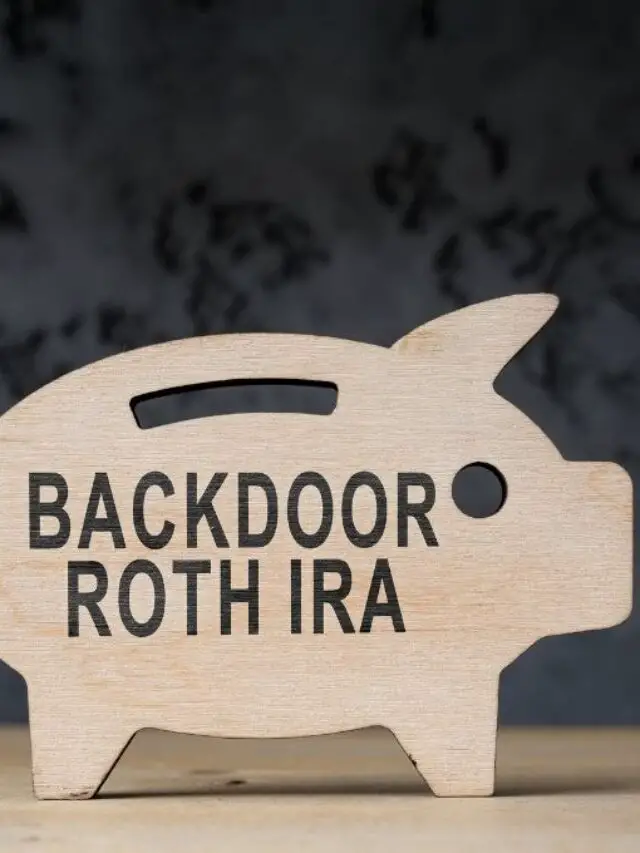Hey there, financial adventurers! Ready to crack the code on one of life’s most perplexing numbers—your credit score? Buckle up, because we’re diving into 14 mind-blowing facts that’ll turn you into a credit score guru. Whether you’re a newbie trying to get your first credit card or you’ve been around the block and need a loan for terrible credit, this guide’s got you covered.
We’ll demystify credit score ranges, bust myths, and even give you the lowdown on how to snag a free annual credit report. Intrigued? You should be. This isn’t just about numbers; it’s about unlocking opportunities, from no credit check loans guaranteed approval to business credit that can launch your entrepreneurial dreams. So, let’s get this financial party started!
Table of Contents
What’s the Big Deal with a Credit Score?
Okay, so you’ve heard the term “credit score” thrown around like confetti, but what’s it all about? Think of it as your financial street cred. It’s a number that tells lenders, “Hey, this person is good—or not so good—with money.” Whether you’re dreaming of a new car or just trying to get a loan with terrible credit, this number is your new BFF or worst enemy.

How’s This Number Cooked Up, Anyway?
So, you’re curious how this magic number comes to life? No hocus pocus, just some serious number-crunching. The big 3 credit bureaus—Equifax, Experian, and TransUnion—take a deep dive into your financial life. They look at how you pay your bills, how much debt you’re swimming in, and then boom! Then accordingly they give you a score between 300 and 850. The closer you are to 850, the more of a financial rockstar you are.
Why Should I Even Care?
You might be thinking, “Why does this number matter?”. Well, a decent credit score can help make your life as easy as a walk in the park. Want a loan? You got it. How about a credit card with a sweet rewards program? Yours, if your score is solid. It’s like having a VIP access to the financial world.
What Makes My Score Go Up or Down?
Your credit score isn’t static; it’s more like a living, breathing thing. Pay your bills on time, and you’ll see it climb. Forget a payment or max out your cards, and yep, it’ll drop faster than a hot potato. So, keep an eye on it. You can even do a free credit score check to see where you stand.
What’s the Range I Should Aim For?
Credit scores come in ranges. Below 580 is the danger zone, and above 740, you’re in the clear. Knowing your range can help you figure out what financial moves to make next. Or should I say know the rules of the game before you play.
How Often Does This Number Change?
Your credit score isn’t set in stone; it updates, usually every month. So, if you’re working on boosting that number, keep checking. You can snag a free annual credit report to see how you’re doing.
Is Checking My Score Free or What?
Good news! You can get a free credit report once a year from each of the big 3 credit bureaus. But if you’re the type who likes to check more often, there are other ways, but they might cost you a bit.
My Score Sucks. Now What?
If your score is looking kinda sad, don’t freak out. There are ways to pump it up. Start by paying your bills on time and maybe even consider a credit builder loan. It’s like financial rehab for your credit score.
Myths That Need Busting
Heard that checking your own score will make it drop? Total myth. Only hard checks from lenders can ding your score. And no, you don’t have to carry a balance on your credit card to build credit. That’s just a fast track to debt city.

Oops, There’s a Mistake on My Report!
If you spot an error on your credit report, don’t just shrug it off. You’ve got the right to dispute it, thanks to the Fair Credit Reporting Act. So, get on it and keep your report error-free.
What’s the Deal with Credit Bureaus?
These guys are the keepers of your financial secrets. They collect all the data about your loans, credit cards, and other financial deeds. Each credit bureau might have slightly different info, so it’s smart to check all three.
How Does My Score Affect My Loan Rates?
The better your score, the better your loan rates. It’s that simple. A high score can get you lower interest rates, which means more money in your pocket.
Can a Good Score Speed Up My Loan?
You bet! A good score can make lenders roll out the red carpet for you. You’re seen as less of a risk, so they’re more likely to approve your loan, whether it’s for a new business or a new car.
What’s the Difference Between My Score and My Report?
Think of your credit score as your financial GPA and your credit report as your full academic record. One’s a quick snapshot; the other’s the full story.
And there you have it! Whether you’re trying to snag a no-credit check loan or just want to understand your FICO score range, knowing your credit score is your first step to financial awesomeness.
Wow, what a ride, right? We’ve just torn through 14 game-changing facts that’ll make you look at that credit score of yours in a whole new light. This isn’t just some random number; it’s your golden ticket or your Achilles’ heel in the world of finance. Want to snag a killer interest rate on a loan or a credit card with perks that’ll make your friends green with envy? Your credit score holds the key.
So, don’t just skim through your free credit report gov dishes out. Dive in, find errors, and get them fixed. Your future self, chilling in a new home or driving a sweet ride, will thank you. Your credit score isn’t just a number; it’s your new financial identity. So, go ahead, own it!
Frequently Asked Questions (FAQs)
- What’s a credit score, and why should I care?
Think of it as your financial street cred. A good one can make your life a breeze, while a bad one can make it a real slog.
- How do they even come up with this number?
It’s a mix of how you handle your bills, your debts, and even how long you’ve been borrowing. It’s like your financial fingerprint.
- Is a higher score always better?
You bet! A high score is your golden ticket to better interest rates and faster loan approvals.
- How often does this thing change?
It’s not static; it updates, usually every month. So, if you’re working on boosting that number, keep checking.
- How can I check my score without hurting it?
Good news! Checking your own score doesn’t ding it. Only hard checks from lenders can do that.
- What’s the deal with these credit bureaus?
They’re like the librarians of your financial life. They keep all the records and help lenders figure out if you’re a safe bet.
- What if there’s a mistake on my credit report?
Don’t just let it slide. You’ve got the right to dispute it, thanks to the Fair Credit Reporting Act. So, get on it and keep your report error-free.
- What’s a hard inquiry?
It’s when a lender checks your credit to see if they should lend you money. It can knock a few points off your score, so don’t have too many.
- What’s a soft inquiry?
It’s a more casual credit check that doesn’t affect your score. Like when you check it yourself.
- What’s this FICO thing I keep hearing about?
FICO is just one type of credit score. It’s named after the Fair Isaac Corporation, the folks who came up with the formula.
- What’s the highest score I can get?
Aim for the stars! The highest FICO score is 850.
- Do I have just one credit score?
Nope, you can have a few different scores, depending on who’s doing the checking and what formula they’re using.
- What’s credit utilization?
Fancy term for a simple idea: it’s how much of your available credit you’re using. Lower is usually better.
- How can I boost a sagging score?
Pay your bills on time, keep your credit card balances low, and don’t open too many new accounts all at once.
- What’s the difference between my credit report and my credit score?
Your report is the whole story, while your score is like the TL;DR version.
- Can I fix errors on my credit report?
Absolutely, you can—and should—dispute any errors you find.
- How do interest rates relate to my score?
Simple: better score, better interest rates.
- What are the best ways to check my score?
You can get a free annual report or use various online services, some free and some paid.
- Is it tough to improve a bad score?
It takes effort and time, but it’s totally doable.
- What happens if I miss a payment?
Your score will take a hit, so try to avoid that if you can.

Prashant Chauhan
Author @ Finance RuffleMeet Prashant Pratap Chauhan, the savvy founder behind Finance Ruffle, a hub for sharp financial insights and expert analysis in the realm of finance blogging.










Pingback: How To Manage Family Loans Like A Pro: 6 Astounding Insights | Finance Ruffle
Pingback: Learn About HELOC Home Equity Line Of Credit: 8 Super Insights For Newbies | Finance Ruffle
Pingback: Decode FHA Loans With 8 Powerful Insights: Your Ultimate Guide | Finance Ruffle
Pingback: 9 Spectacular Ways To Borrow Money | Finance Ruffle
Pingback: 5 Mystical Aspects Of Debt-to-Income Ratio For A Mortgage: A Comprehensive Guide | Finance Ruffle
Pingback: First Time Home Buyer Program By State: 5 Powerful Insights For Your Dream Home | Finance Ruffle
Pingback: 5 Remarkable Reasons Payday Alternative Loans Outshine Payday Loans | Finance Ruffle
Pingback: 6 Best Insights Of What Is A USDA Loan And Your Eligibility Criteria | Finance Ruffle
Pingback: 7 Key Insights Of Cash-Out Refinance: The Comprehensive Guide | Finance Ruffle
Pingback: Unlocking The Enigma Of Forgiving Student Loans: 5 Gripping Revelations | Finance Ruffle
Pingback: 203k Loan: 5 Powerful Insights For Home Renovation Dreams | Finance Ruffle
Pingback: 8 Powerful Ways Mortgage Refinancing Could Help You Pay Off Your Home Faster | Finance Ruffle
Pingback: Personal Loans: 10 Essential Insights | Finance Ruffle